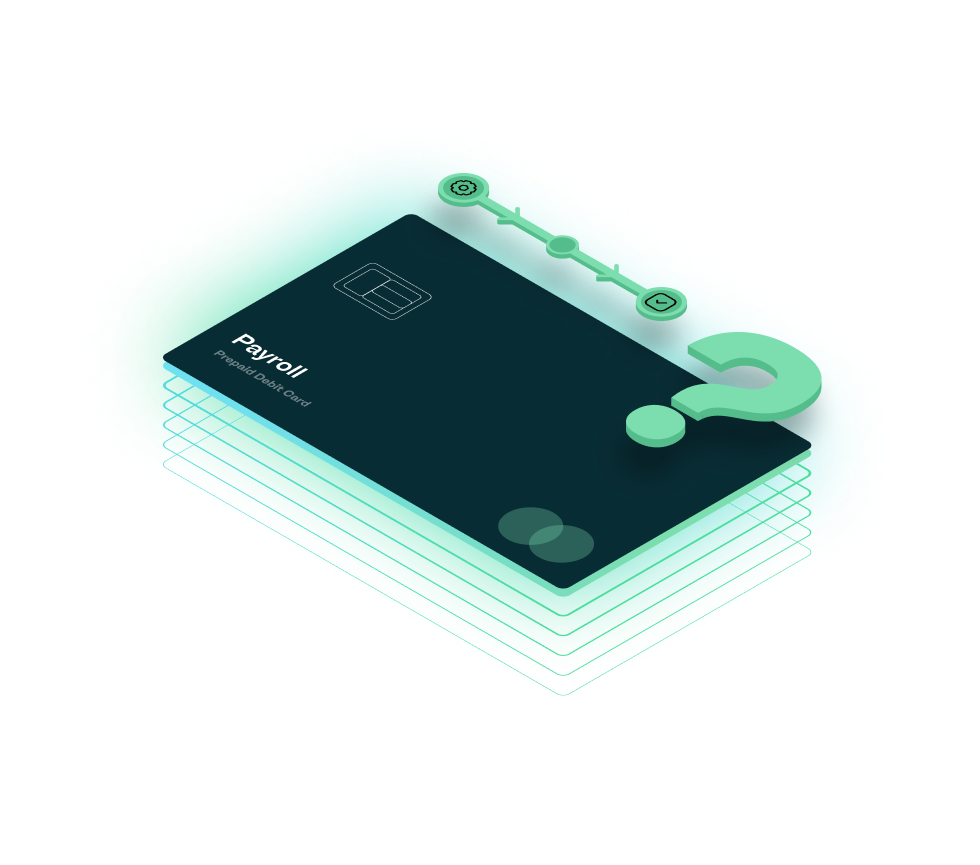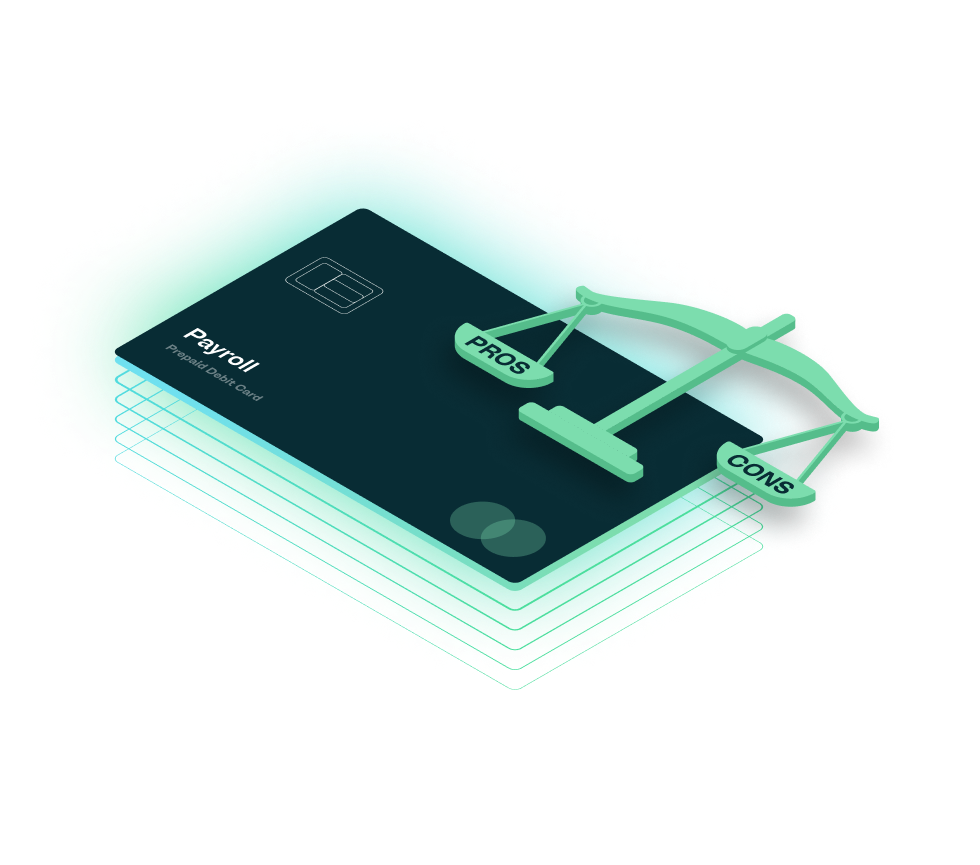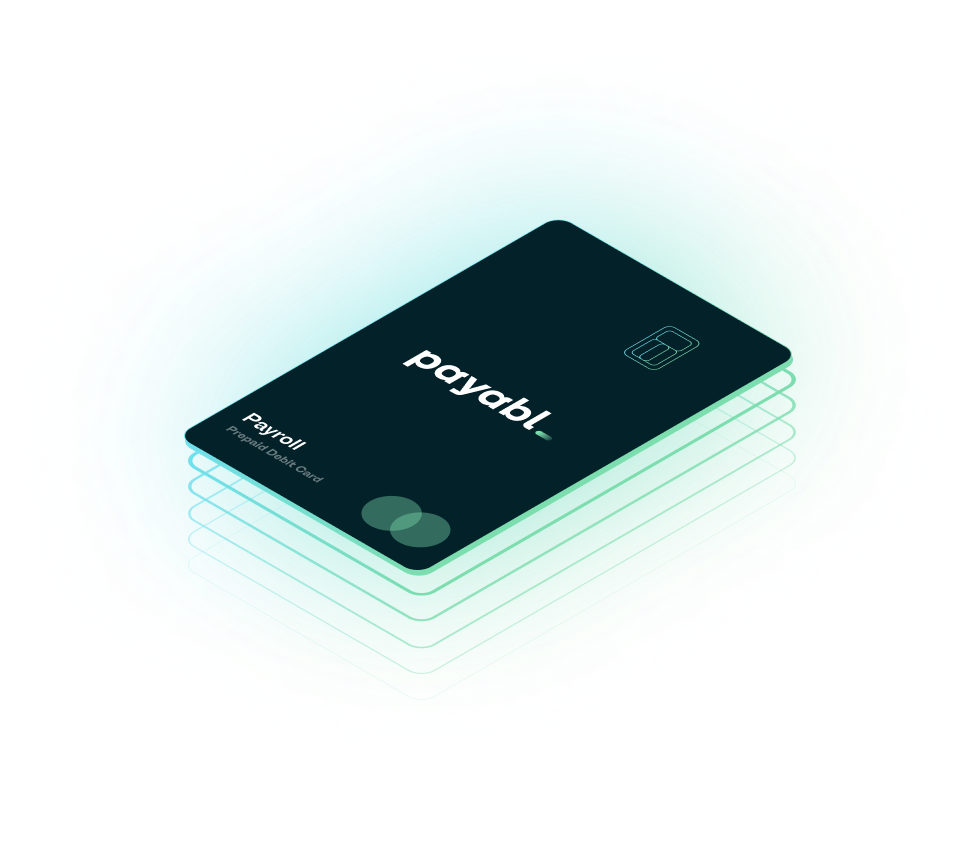Managing employee payroll can be a complex job, especially if you rely on direct deposit or electronic funds transfer (EFT) systems or even paper checks to pay out employees' wages. For maximum convenience and proper compliance, you might need each new contractual or full-time employee you recruit to apply for a new bank account of your choice, which can be taxing and time-consuming.
This guide introduces a better, more convenient and flexible alternative payment method to traditional salary disbursement methods: the payroll card. We talk about how payroll cards work, their benefits, and why they might be the right choice for your business, especially if you're looking to streamline operations and reduce administrative costs.
What is a payroll card?
A payroll card, also known as a pay card or salary card, is a type of prepaid debit card for businesses used solely to pay employees and contractors their salaries at the end of each pay period. Instead of sending the salary to each employee's bank account, the employer pays them by crediting their unique prepaid payroll card with their respective salary amount.
A worthy direct deposit and bank account alternative
The card works like a standard debit or prepaid card – the employee can use it to withdraw cash, pay bills, perform POS transactions, and even make online payments. Payroll card programs are a great option for unbanked employees because a cardholder does not need to have a checking account with any bank or credit union to use their payroll card. They also don't need to pay any extra fee to access the money on their card.
How do payroll cards work?
A payroll card is a prepaid card for businesses that is used to pay employees or contractors. After the employer transfers the employee's wages or a payment to any contractor, the funds become available for immediate access. This allows the card to be used in the same manner as any other prepaid or debit card. This means that the user can withdraw money from ATMs, purchase products and services from any business that accepts card payments, both online and in-store, and more.
The major difference between a standard debit or prepaid card and a payroll card is that the user is not required to have a bank account of any sort. However, this doesn't mean you can't offer paycards to employees who do have bank accounts; they can use them for budgeting or even as supplementary debit cards for other family members with whom they want to share some or all of their salaries!
A salary card typically comes with some sort of online portal that the cardholder can use for even greater convenience. Through this portal, the user can check their payroll card's balance, transaction history, PIN, notifications, settings, and other analytical tools that track spending and enable easier management of one's funds.

Prepaid payroll cards: Pros and cons
There are several advantages and disadvantages to using paycards for business. The main pros and cons of payroll cards are identified and discussed below.
Pros of pay cards
- The cardholder is not required to have access to a bank or bank account to gain access to their money. This helps employees who don't have a bank account – and don't want to open a new one either – to store and withdraw their money.
- Salary cards are a less costly payroll solution for the employer in comparison to acquiring cheques to issue payments.
- Paycards can be used anywhere card payments are accepted. The cardholder can withdraw funds from ATMs and purchase products and services online or in-store.
- Prepaid payroll cards present a secure salary payment solution with the same security features as any standard card, including chip and PIN. This means lost and stolen cards can be rendered void, ensuring the cardholder does not lose their funds.
- An online cardholder portal can be used by cardholders to view their balance, transaction history, and more.
- The employer business can schedule thousands of payments or just a single one at a time. These payments happen in real-time, with no delay in transferring the funds, making it an excellent tool to ensure the correct and timely distribution of payments and wages.
- The personalised prepaid payroll cards further contribute to a decrease in the use of resources such as paper and administrative time needed for issuing cheques.
- It's a great cashless solution for businesses, employees, and contractors with an appreciation for digital funds management.
Cons of pay cards
- Most prepaid payroll cards for businesses have a monthly maintenance fee, usually paid by the business or employer. However, this depends on the payroll model that the business wishes to use.
- Employers may need to train and educate their employees about how a payroll card works so that they do not incur fees due to misuse.
- Certain ATMs may limit the amount of money that can be withdrawn, thus limiting cardholders' use of their funds.
- In case a card is lost or stolen, emergency card replacement can take some time, during which employees lose access to their funds.
- A prepaid payroll card is not connected to a bank account, so it does not have a designated IBAN number linked to it. This means cardholders can't top up their own card; it only accepts corporate loads, such as salary payments, bonuses, etc.

payabl. offers prepaid payroll card solutions for your business
By now, you should have a clear answer to all your questions about what a payroll card is and how it works to make salary disbursement easier for employers, along with several other benefits it offers to businesses and their employees and contractors.
payabl. is here to help. We offer payroll cards to businesses that ensure convenience, accurate payments in a timely fashion, and decreased costs in terms of administrative time, cheque issuing, and wire transfer fees.
We make sure that our paycard program is tailored to the specific needs of your business, providing your employees and contractors with convenient, secure access to their payments, free of the hassle of spending physical cash.

Contact us to find out how our prepaid payroll cards can reduce the costs of your payroll operations, increase employee satisfaction, and ensure a simple, effective payroll, regardless of the type of your business model.
